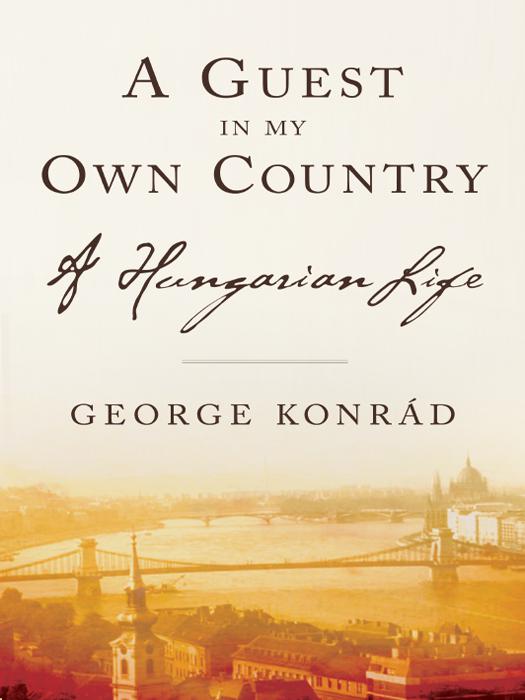
A Guest in my Own Country
A Hungarian Life
فرمت کتاب
ebook
تاریخ انتشار
2011
نویسنده
Meghan O’Brienنویسنده
David Drummondنویسنده
George Konradناشر
Other Pressشابک
9781590514955
کتاب های مرتبط
- اطلاعات
- نقد و بررسی
- دیدگاه کاربران
نقد و بررسی

January 22, 2007
This powerful, highly literary memoir by a world-famous author—essayist and novelist Konrád was elected president of International PEN in 1990—discursively traces his life as a Hungarian child during the Holocaust, and later as a student during the Hungarian revolution of 1956. While it deals with his growth as an intellectual and writer, it is primarily a meditation on the conflicts between national and individual identity. Konrád's prose is distanced and unemotional, but always carries a potent punch: "In the winter of 1944–45 I saw any number of dead bodies. I could picture myself among them, but the tasks of day-to-day existence obscured most of my imaginings. Danger makes you practical." This cool, objective voice works as well for the smaller vignettes as it does when he is musing on Dr. Mengele's obsession with killing Jewish children. There are moments of almost surreal narrative here—his mother and father tell Konrád (b. 1933) and his sister bedtime "adventure stories" of how they survived the war—but also moments of stately, traditional bildungsroman. His account of the 1956 revolution, in which he was an active participant, is equally laconic. This memoir stirs and provokes in unexpected ways that linger after it is read.

July 1, 2007
Part memoir and part philosophical rumination, this haunting work evokes the repressive atmosphere of Hungary during the last half of the 20th century. Konrá d, a preeminent Hungarian writer and former president of International PEN, divides his book into two parts: his childhood during the Nazi repression and his life post-World War II, particularly the years 195070. His writing style, as it comes through in this translation, allows the reader to feel his tension in the face of almost continuous persecution from childhood onward. In spite of this, he somehow was unable to abandon Hungary for a freer life in the West. Konrá d speaks frankly of the horrors that he encountered during the Nazi occupation ofBudapest and of his personal struggle as one of the only surviving Jewish students from his school. He also describes his rather casual support of the Hungarian Revolution of 1956; he was able to stay in the country when many intellectuals fled for fear of execution. Although not a detailed history like Charles Gati's "Failed Illusions: Moscow, Washington, Budapest, and the 1956 Hungarian Revolt", this book is fascinating on many levels (philosophical, historical, political, and as a work of literature) and is recommended for both public and academic libraries.Maria C. Bagshaw, Lake Erie Coll., Painesville, OH
Copyright 2007 Library Journal, LLC Used with permission.

























دیدگاه کاربران